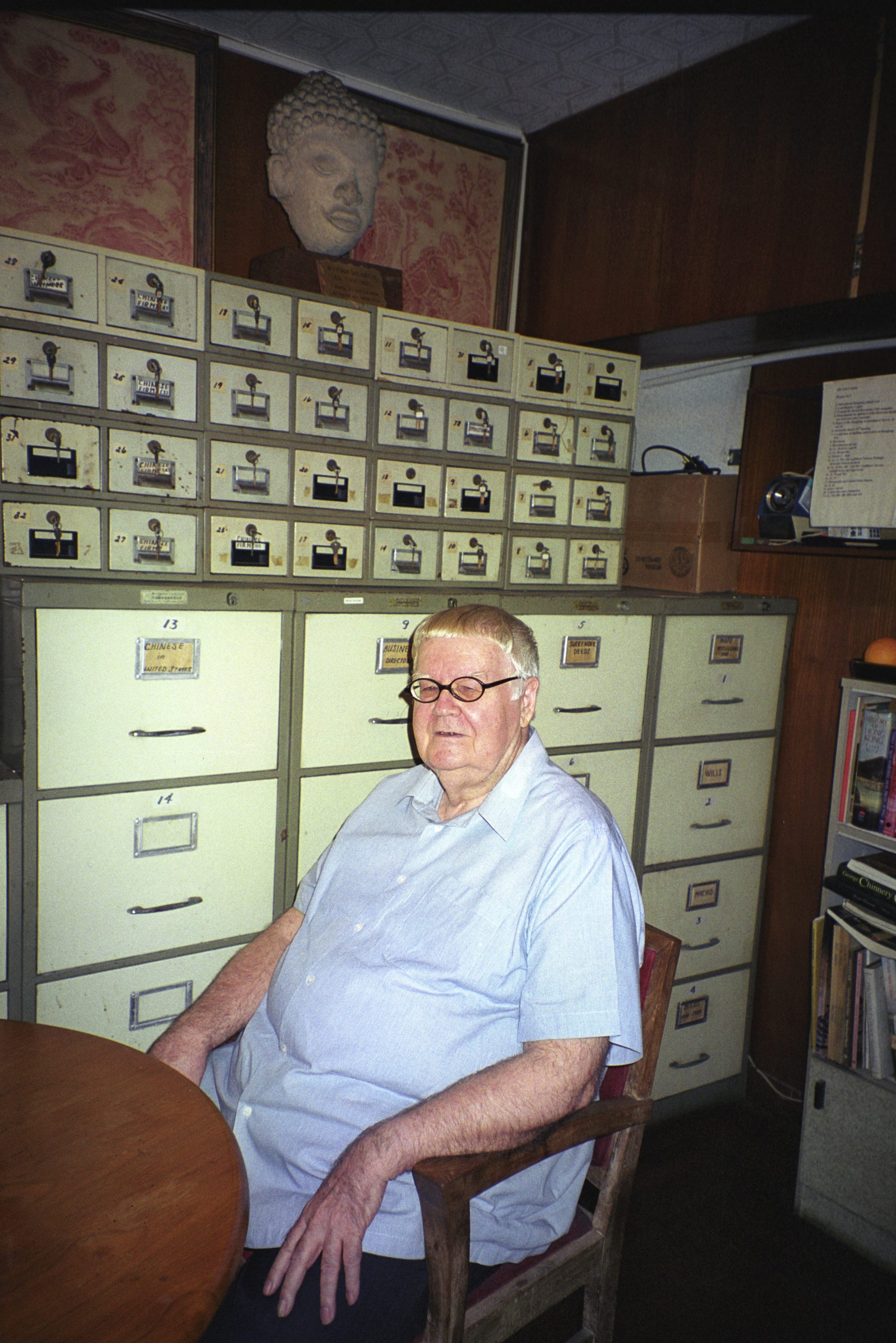
The reverend historian of early Hong Kong society, with his floor-to-ceiling index card databases, who shone a light on a neglected past
- Reverend Carl Smith was the ‘Doyen of Hong Kong Studies’, an amateur historian who burrowed into old records to reveal the lives of families
- He filled his flat with floor-to-ceiling databases of index cards, long before personal computers, and left a legacy that underpins much history writing
No one involved in Hong Kong historical work can ignore the enormous debt owed to the pioneering social history research conducted by Reverend Carl Thurman Smith, known affectionately for more than three decades as the “Doyen of Hong Kong Studies”.
Long-ago lives that were largely lost to posterity have re-emerged from history’s shadows as a result of Smith’s groundbreaking research.
Meticulous burrowing into basic primary source information, such as land records, commercial directories, membership rolls of trade guilds, temple committees, mercantile associations, cemetery and baptismal records, in tandem with careful cross-referencing, allowed a more comprehensive picture of early Hong Kong society to emerge than ever before.
Born in 1918 in Dayton, Ohio, in the United States, to a comfortably-off family that owned an ice cream factory, Smith studied theology and divinity and then became an ordained clergyman. During that time, he developed an absorbing fascination with genealogy and local history research, and periodically lectured on these subjects.
15th century Chinese admiral Zheng He’s hidden legacy in Malacca, Malaysia
Through these scholarly interests, Smith became acutely aware of the importance of basic primary source materials, in particular information contained in parish and cemetery records.
Smith came to Hong Kong in 1960 to lecture in theology at the Church of Christ in China’s Theological Institute at Tuen Mun, and remained in Asia for the rest of his life. From 1962 until his retirement in 1983, he lectured at Chung Chi College – later incorporated into the Chinese University of Hong Kong.
Soon after he arrived, Smith became fascinated by early Christian church history in Hong Kong, and in particular, the largely unknown lives of Chinese Christian converts. Asked to prepare a course on the history of the Protestant church in China, he found that most books on the subject dealt mainly with pioneering Western missionaries and their activities.
Who the Chinese converts were, and the story of their lives – both before and after their religious conversion – was largely undocumented.
Intrigued by this historical absence, Smith set out to learn as much as he could about these vanished individuals, and the various communities they created and inhabited, and then reconstruct their patterns of life as far as possible.

An already well-evolved practical knowledge of primary source research techniques acquired in the US was immediately applied to the field of Hong Kong social history, leading to an extraordinary pre-digital-era database created using card indexes, which grew until their cabinets filled entire walls – floor to ceiling – of his apartment in Mei Foo Sun Chuen.
This documentation later formed the bedrock for his seminal study Chinese Christians: Elites, Middlemen and the Church in Hong Kong (1985), which explores the personal, mercantile, social and religious networks established by these converts.
His 1995 book, A Sense of History: Studies in the Social and Urban History of Hong Kong, documents themes related to minority communities, the lives of women and children, neighbourhood history, and other little-explored aspects of the local past.

While Smith’s research now underpins much other Hong Kong history writing, his contributions to local scholarship were sadly underappreciated by the professional academic establishment during his lifetime.
Undaunted, Smith was content to work quietly on a fascinating personal hobby that steadily evolved into an entire dimension.
Always interested in the multifaceted connections that linked early Hong Kong’s urban evolution to previous Macau networks, these research interests drew him there more frequently over the years.
Re-energised by Macau’s more appreciative scholarly community, Smith moved there in 2002, where, after a period of declining health, he died in 2008, aged 90.

